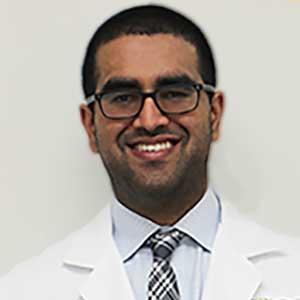Physician Residency Start
As the end of the academic year approaches graduates at all levels look onward to their next adventures. Whether this be a middle-schooler about to transition to high school or a college graduate starting medical school the unknown often looms. These new adventures may be in the same vein as what people have done before (i.e. more school, another year of residency), yet generally still hold a certain degree of uncertainty. This uncertainty is even further magnified in those instances where one has no previous experience such as transitioning from medical school to residency. Although medical schools have progressively worked to incorporate their students earlier into the patient care process, being relatively "alone" for the first time as a newly anointed doctor making decisions about people's lives is to put it mildly daunting. Bloggers often write articles such as "Things I wish I could tell my 20-year-old self" because hindsight truly is 20/20 and it is for this reason that today I would like to act as your future self and possibly provide you with some tidbits of things I wish I had known before starting residency.
To start: It's going to be scary, and that's ok.
Even if you're starting residency at the hospital you did medical school at and you've done 2 Sub-I's there, it's still going to be scary. Just understand that no one no matter the preparation can know everything right away, that it will take time to acclimate and that is ok. Each day that goes by will add to your confidence and your understanding of the system which is healthcare to the point where you'll come to see everything as second nature. In a similar vein: You will make mistakes. Being in new hospital systems with the ever so user friendly electronic medical record systems that are now ubiquitous and having all of these controlled by error prone humans can create a recipe for disaster. Dosing medications for practice and assisting on a procedure are often dramatically different then performing them on a live patient. Know that errors will happen and unfortunately there may be some grave errors which may occur. Just trust that you are on a team and in training. Even if you are a senior resident, if you are uncomfortable with something feel free to ask questions because people's lives are affected by your decisions. If you knew everything you wouldn't have to go through residency training in the first place.
Second: The Gold Standard is not always possible!
As we go through medical school, we are continually taught what the gold standard test is or what needs to be done for certain conditions. The caveat that you will quickly and unfortunately frequently come to understand is that medicine is a business. Whether society likes to acknowledge it or not medicine is a business and the CEO is insurance. As a new graduate you come in wanting to order tests, medications and perform procedures in the best interest of the patient yet are thwarted by the machine that is insurance. Learning the ninja-warrior style moves and tricks that must be utilized to navigate the intricacies of each insurance's requirements and nuances takes time. Your case managers, social workers, seasoned residents and attendings will be your guides through this obstacle course. Just remember, if you think that an intervention is needed, always advocate for your patients and challenge the insurance companies because cost or availability should not preclude appropriate care for all.
As previously mentioned, this field is run by humans and humans have different personalities. Although there are universal standards and recommendations for care, each attending and practitioner you work with may have their own intricacies, techniques and style of practice. You must learn to be the swiss army knife of practitioners, tailoring and adjusting your style of care to the attending you are working (possibly multiple times per day). You will be fortunate to be able to observe many different techniques on procedures, bedside manner and overall approaches to patient care. Remember to always be yourself, create your own optimal style of care and cherry pick the good techniques you see in the practitioners training you and leave behind the bad.

Dr. Rahul Bijlani — Former chief resident of physical medicine & rehabilitation at Washington University in St. Louis.